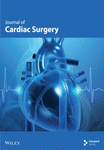Exploring an Optimum Intra/Postoperative Management Strategy for Acute Hypertension in the Cardiac Surgery Patient
Dr. Cheung is on a speakers bureau for ESP Pharma, Inc., and receives grants and research support from ESP Pharma, Inc., the Medicines Company, and XOMA Ltd.
This paper was presented at a symposium entitled “Understanding Vasospasm to Improve Operative and Neurologic Outcomes in Cardiac Surgery,” which was held April 11, 2005, in San Francisco, California, in conjunction with the American Association for Thoracic Surgery 85th Annual Meeting and sponsored by ESP Pharma, Inc.
Abstract
Abstract An estimated 50% of patients undergoing routine cardiac surgery require intravenous antihypertensive therapy to manage life-threatening arterial bleeding, myocardial ischemia, or cardiac failure in the perioperative period. Managing hypertension in this setting can be challenging because of the need to reduce blood pressure while maintaining adequate end organ perfusion. Hypotensive episodes can increase the risk of cardiac complications and end organ hypoperfusion, particularly in patients whose underlying cardiovascular disease has altered autoregulation of blood flow. To decrease the risk of hypertensive or hypotensive episodes, blood pressure is monitored continuously, and short-acting intravenous antihypertensive agents are administered in an effort to target a mean arterial pressure generally within 20% of the patient's baseline value. Efforts to optimize end organ perfusion and avoid recognized adverse drug effects may influence the choice of antihypertensive agents. The ideal agent for postoperative hypertension should have a rapid onset of action, be highly vascular selective, and be rapidly reversible. In addition, it should be safe, with little risk of overshoot hypotension or adverse drug reaction. Precise management of arterial pressure in the perioperative period has the potential to improve clinical outcome by avoiding hypotensive episodes, ensuring adequate end organ perfusion, decreasing the risk of adverse drug effects, and serving as a bridge to definitive long-term therapy for essential hypertension.




